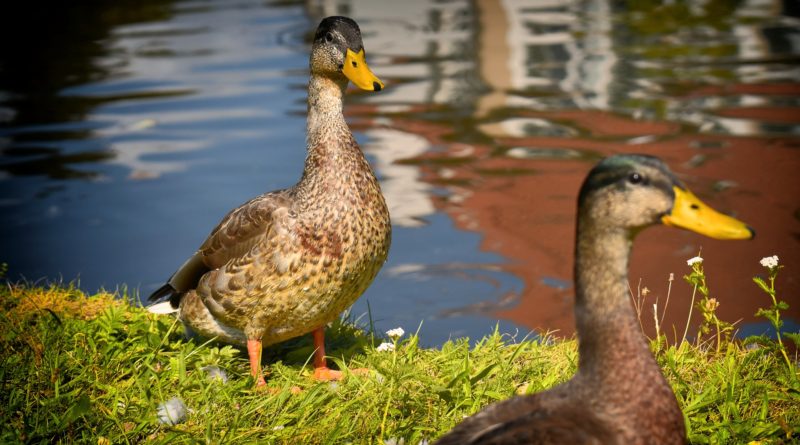In The Floodplains of Bangladesh Farmers are Switching from Chickens to Ducks. Why? Because Ducks Float
Bangladesh is located on the Bay of Bengal on the delta of three large rivers, Ganges, Meghna, and Brahmaputra. It’s a low lying and relatively new country and so is subject to extreme flooding from storms, and suffers from poor infrastructure. The country is particularly vulnerable to the effects of climate change, with future rainfall predictions suggesting a doubling of winter rains within about the next thirty years. And so the wet seasons are getting wetter. A lot wetter. Flooding is a national concern, and efforts to decrease vulnerability and to increase the resilience of the country or their ability to anticipate, prepare for, reduce the impact of, cope with and recover from the effects of shocks and stresses without compromising their long-term prospects. And all of this has led to a very simple but effective solution for this flood ridden country: ducks.
Although chickens have been a staple animal for farmers in the area, changes in climate have changed things. The country is so often impacted by cyclones and flooding that chicken stocks were at risk the same as the people of Bangladesh themselves. Intense winds can blow chickens away, and if they get out of it uninjured it’s unlikely these flightless birds could ever return, and then there are the floods. Ducks on the other hand can fly and they can swim. Although they aren’t as selectively bred to lay eggs, they can, and their meat can be sold by farmers.
It’s a simple solution, and it’s not the only one. Community Disaster Management Committees (CDMCs) in coordination with the British Red Cross, the Swedish Red Cross, the German Red Cross, and the International Centre for Climate Change and Development, have enacted several improvements to increase the resilience and reduce vulnerability for Bangladesh and its communities and individuals. Teaching and direct funding have led to an increase in sanitation, disaster preparedness, and ability to respond to disasters. Farmlands have increased. household incomes have increased. People are even using soap more often.
The takeaway here is that simple solutions can have big impacts. Education can help combat the shocks caused by climate change. And, if it walks like a duck, flies like a duck, and swims like a duck, it’s probably a better animal to rear than chickens in a region prone to intense and regular floods.
